|
Go, therefore, and make disciples of all nations, baptizing them in the name of the Father, and of the Son, and of the holy Spirit, teaching them to observe all that I have commanded you. –Matthew 28:19 How do you think the “mission statement posted on the wall” compares to the lived experience of the community following it? A dear friend of mine asked me this question after I shared about my long and tiring week. I was challenged by how people I was working with were approaching a situation. A mission statement that is written or spoken about, and the mission lived among a group, are expected to be the same. Yet I was conflicted by a recent experience of the opposite–my community was following something else. The Catholic Church is echoing mission-based language more and more in recent years. Phrases like “Go, therefore, and make disciples of all nations,” or “missionary discipleship” based on the call of Pope Francis in Evangelii Gaudium permeate our ministries and parishes. This is not something new; we have always been called to live out our baptismal promises and evangelize all nations. Now our approaches are being adapted to accommodate an ever-changing secular culture. As Matthew’s Gospel proclaims, we are “co-missioned,” working with the Father, Son, and Holy Spirit in sharing the Christian identity. From the personal to the global level, every Christian is invited, asked, urged, encouraged, and challenged to encounter someone who does not know about Christ’s life, death, and Resurrection. This Christian message had been overlooked in my recent experience within my mission-based community. What I valued in “the mission statement on the wall” was important in writing, words, and actions, but not everyone who I engaged with operated with the same spirit in mind. It struck me how different the culture was from what it promoted. Like the renewed movement in the Church for a new evangelization, I could see the need to “re-member” the reason and context behind our mission. Since then, I’ve taken time to reflect on how I engage with others and the communities I participate in. Am I living out the mission Christ called me to, or do I follow my own way? Pope St. John Paul II wrote in Redemptoris Missio about the trend in the modern world to function based on personal perspective without considering God, saying, “There is a tendency to reduce man to his horizontal dimension alone. But without an openness to the Absolute, what does man become? The answer to this question is found in the experience of every individual, but it is also written in the history of humanity with the blood shed in the name of ideologies, or by political regimes which have sought to build a ‘new humanity’ without God” (RM 1, 8). This is a very real human temptation that I discovered within my own community. I could see how individual preferences were valued over guidance and openness to the Spirit. The formed mission of the community was posted but not followed, spoken about but not acted upon. We had forgotten the story behind the mission. As we enter a new liturgical year, much like a new calendar year, there is an opportunity to reflect on the purpose behind our actions within our ministries, organizations, parishes, families, and communities. We can sit with God and ask challenging questions while holding ourselves accountable to the answers. My friend’s question led me to a collective examination of conscience that can take place right alongside my personal examination of conscience. Why are we here? What is it that we’re being asked to do? How do we share our gifts with one another and those we serve? What is the goal of our work? Who or what do we serve by following this mission? Am I and are we following these goals to the best of our ability? If ever there is an area of weakness, we can work to remedy it within the community. Followers of Jesus prepare their hearts to accept “The Great Commission” by participating in the works of mercy, the sacraments, prayer, liturgy, and fellowship. I am going to use this special time of Advent to recommit myself to my personal mission and communal mission. The ultimate “mission statement on the wall” is the one God has written on our hearts in baptism, “to go and make disciples,” through our witness and evangelization. In humility I must continue to ask myself, am I living this mission? Reflection Questions: At the beginning of Advent, take time to consider the communities you are a part of and their various mission statements. How do you contribute? How can you grow in faith and dedication to the ultimate mission of Christ and the Church? Click here to visit our Living As Missionary Disciples Resource Page.
0 Comments
Despite the overwhelming presence of Christmas decorations and holiday spirit in December, many people still gloss over Advent. They might notice the Advent wreath at Mass or the change in liturgical colors, but before they are able to ponder what any of that really means it is Christmas Day, the Son of God has been born, and they have done nothing to prepare for Him.
As a young teenager, it would usually take me a week or two to adjust from the Thanksgiving mindset to the Christmas mindset and by then it was already Gaudete Sunday, the third Sunday in Advent. I would find myself saying, “Father gave a great Advent homily today, I should definitely think about these themes this week,” or “Advent might be a good time to start praying more regularly.” Despite these thoughts, I would not think about the homily after Sunday and rarely tried to increase my prayer life during Advent. This seems typical for a lot of people. We come up with great ideas during Mass and then when we go home and promptly find other things to be concerned about. If we think about it, this is probably why we get reminded year after year of the ‘true meaning of Christmas’ … because despite knowing what Christmas is about, we don’t often take the proper steps to prepare our hearts and minds for the event. And yet, Advent is the perfect time to reignite our faith and start anew. It is a time to practice the virtue of patience and to prepare ourselves to be open and ready for the coming of Christ. As Pope Francis said on the first Sunday of Advent in 2013, it is also a time to hope: "Just as in each of our lives we always need to begin again, to get up again, to rediscover the meaning of the goal of our lives, so also for the great human family it is always necessary to rediscover the common horizon toward which we are journeying. The horizon of hope! This is the horizon that makes for a good journey. The season of Advent, which we begin again today, restores this horizon of hope, a hope which does not disappoint for it is founded on God’s Word. A hope which does not disappoint, simply because the Lord never disappoints! He is faithful! He does not disappoint!" Pope Francis is calling us to reconnect with the beautiful mysteries of Advent, to rediscover ourselves, our faith, and the purpose of family. He is asking us to rediscover hope. Hope is not easy to have by itself, but it is easy to find when we prepare ourselves and when we seek to understand the mysteries of Christ’s birth. But preparing ourselves for the Lord’s coming is easier said than done. There are many ways that we can embrace this Advent season with our parish communities, friends, and families. Consider trying out a few of these methods this year:
These are just a few suggestions to help you on your Advent journey. There are of course many ways to prepare for the birth of our Lord. The important thing is to prepare. Let us challenge ourselves each and every day to open our hearts to the Lord. Let us embrace this Advent season so we might be ready to receive the Son of God on Christmas morning. For more information on Advent, check out our Advent Resources page here. Nicholas Shields is a Young Professional in Washington, D.C Growing up in a fairly large extended Catholic family, I remember the Thanksgivings of my childhood always including long, loud dinners, preceded by seemingly longer prayers of grace before the big meal. As children, we were encouraged (or, really, required) to go around the table and each name one thing we were most thankful for. It could be something small or large, momentous or enduring, as long as it was something we were truly grateful to have in our lives. My parents, aunts, and uncles were naturally trying to make sure we didn’t take for granted the food on the table, let alone all the other blessings in our young lives. There were plenty of years when, fancying myself the dutiful elder of two children, I’d spend the week or so leading up to the holiday concocting the best possible thing to say I was thankful for, lest my younger sister or one of my cousins come up with something better. And then there were the years when I completely forgot to prepare, only to halfheartedly come up with something on the spot when my turn came. While the former may have boosted my ego, the latter made up for it by knocking me down a peg. I’d often think to myself, “Could I really be so ungrateful that that’s all I could come up with?” As we hear in today’s Gospel reading, one of the ten lepers, “realizing he had been healed, returned, glorifying God in a loud voice.” Jesus commended the Samaritan man’s gratitude, telling him, “your faith has saved you.” Don’t we all prefer to think of ourselves as that dutiful, humble foreigner, rather than counting ourselves among the nine ungrateful ones who couldn’t be bothered to thank Jesus? And yet, how quick we are to forget the truth that we are, in fact, abundantly blessed by God. I’ve always found this story to have two key points. First, we are better able to receive God’s blessings and grace when we are grateful: “your faith has saved you.” The second is a bit more hidden, though. Note how Luke mentions that, “one of them, realizing he had been healed, returned” to thank Jesus. It’s not necessarily true that the other nine were just a bunch of ingrates. Rather, they were doing what Christ had instructed them to do. They obeyed in an act of faith, and in so doing, were healed along the way. While they were healed physically, however, the leper who returns is also healed spiritually: he is saved. How often do we forget, in the midst of the stresses and struggles of life, that we’ve each been blessed by God? It’s not a matter of remembering to thank Him for the big things; those parts of life are the easiest to be grateful for. It’s the small things, the things we take for granted, that we ought to try the hardest to be thankful for. Not only will that reflection make us more appreciative of our blessings themselves, it will remind us even more deeply that all of life’s blessings are gifts from God. Question for Reflection: What are some things you are grateful for this year? St. Paul offers us this challenge: “Be filled with the Spirit . . . giving thanks to God the Father at all times and for everything in the name of our Lord Jesus Christ” (Eph. 5:20) (emphasis added). Be thankful “at all times” and for “everything?” “Well that would seem to include suffering and evil. Really Lord – you want me to be thankful for that trial in my life? I'll be thankful for other things but not for that. That's impossible! Lord, at the very least, maybe you could tell me a little bit more about how I can live this radical gratitude? Help my unbelief!” This is how my prayer dialogue went with God one day as I examined my attitude toward gratitude. I thought to myself, “Do I treat gratitude as just one of those nice pious sentiments that I should do in general, but ignore when it costs me? In other words, do I make gratitude just a platitude?” I know I have treated gratitude in that way and have brushed off the Christian teaching to be thankful 'at all times' as idealistic on more than one occasion. I began to examine my soul more in depth. Why do I do this? “Usually,” I concluded, “it is because of a lack of knowledge as to why something is good for me and because my thoughts are too limited on the topic.” But God wants to break open our limited thoughts and actions. So I pressed on in my search for a deeper meaning of gratitude. Here is what I discovered. I read a book recently that changed my perspective on gratitude. The author explained that gratitude is not just a good practice to do occasionally to uplift our spiritual lives, but is actually a necessary law of every Christian spiritual life. Gratitude is not an option; it is something we have to practice regardless of temperament, disposition, or circumstance. Based on my reading, I came up with two patterns for our spiritual life: the “cycle of spiritual fruitfulness” and the “cycle of spiritual emptiness”. The cycle of spiritual fruitfulness begins with trust in God, which is nourished through faithfulness to one’s prayer life. Through prayer, gratitude grows. Gratitude is being aware of God’s many gifts in the daily happenings of our lives. Gratitude then becomes a necessary part of trust, especially in the midst of our suffering because gratitude opens up our heart to God. As we see more of God in our lives, then we give more to God and in turn are better able to receive more of God's love and grace in our life. This cycle, which begins with trust and gratitude, then repeats as we grow in love and become more loving gradually. This can be boiled down to: Trust through Prayer → Gratitude → Opens Heart → More Love The cycle of spiritual emptiness begins with a lack of trust in God and a lack of faithfulness to one's prayer life. Negativity focused on our weaknesses, what we lack, and our suffering replaces gratitude, closing our hearts and making us less capable of receiving God's love. We may even sin, like Adam and Eve in the Garden of Eden, whose ingratitude ultimately led to the first sin (Genesis 3). If we let this endure too long, then our whole life can become one big storm of sadness and anger. This can be boiled down to: Distrust through Not Praying→ Negativity → Closed Heart → Less Love Radical Gratitude Reconsidered The cycle of spiritual fruitfulness offers us several good reasons for why St. Paul instructs us to be grateful at all times and for everything with no exception. If I want to open up my heart more to the Lord and thereby love more, then I must find a way to be thankful - even for the most difficult suffering. Thankfulness is not an option reserved only for those who describe themselves as sanguine or optimists; thankfulness is a necessary part of holiness. It is therefore no coincidence that the highest Sacrament in the Church, the Eucharist, in Greek literally means “thanksgiving, gratitude.” With this in mind, I went back to my dialogue with God. I asked God for the grace to be more grateful in my daily life for everything. God, in turn, has asked me when I am tempted to be ungrateful and negative to make an act of trust in the moment and find something to be grateful for – health, the fresh crisp autumn air perhaps, or even more profoundly – my daily Sacrament with my wonderful wife – and thereby to become more aware of His love in my life. Slowly then, I become a little more grateful and a little less negative. Eventually I hope to build a habit of radical gratitude for every occasion in my life. This gratefulness does not come overnight and does not necessitate a formal act of thankfulness at every moment. As I become more grateful in those little moments, I will not only be able to resist ingratitude in the more difficult moments, but will also be better able to be grateful even for new sufferings. In this way, I am trying slowly to become thankful at all times by committing to a few acts of trust each day through gratitude. Radical gratitude is possible, but only through God’s wonderful grace! Through grace, I have come to learn the importance of radical gratitude and the cycle of spiritual fruitfulness. I choose the cycle of spiritual fruitfulness. What cycle are you on? Come Holy Spirit, make all of us more radically grateful! This past September, a colleague and I traveled to three cities in the U.S. to discuss with local ministry leaders ways in which Catholic Relief Services (CRS) could engage young adults. Our basic question was this: How can CRS contribute to the conversations folks in their 20s and 30s are already having around issues of peace, justice, and global solidarity? Two very clear, and slightly discordant, ideas emerged. The first: folks in their 20s and 30s want to offer their time to serve those in need. The second: we as Church might do better to shift from doing good for a world in need to being good for our world. What do I mean by this? The instinct to do good—to be a service to others, to give of ourselves, to respond in charity to the Gospel invitation to love our neighbor—is something to be applauded. In fact, integrating service into young adult ministry was a priority we heard time and again during our conversations. But not all world-changing, do-good ideas are created equal. In fact, some can be quite harmful. (For one example from some of CRS’ work that illustrates this general point, check out our Changing the Way We Care initiative on orphanages.) I’m not saying we shouldn’t dedicate time, talent, and treasure to helping those in need—both in our own communities and around the world. But we should challenge ourselves to be intentional about our initiatives, to investigate the real impact of our efforts—both intended and unintended. We should also ask ourselves who we are really serving: our own sense of self-worth or the real common good. I write all this by way of reflection on Pope Francis’ calling for a World Day of the Poor, the first of an annually recurring day that begins November 19, 2017. (Click here to read about it in the pope’s own words.) When we think of poverty, our knee-jerk reaction may be to rush to the nearest shelter with old clothes in hand. It may be to donate to a worthy cause. It may be to jump on a plane and fly across the world ready and able to build a house for a family without one. None of those things are bad, right? People need and deserve clothing and shelter, and charitable donations fuel so many organizations like my own. But intentionality demands that we challenge our own assumptions. Is the local shelter looking for the kinds of clothing I’d like to give, and do they have capacity to sort through them? Does that distant country need me to build a house, or is there a local engineer who is better able to accomplish the job? Do I know what percentage of donations an organization puts toward actually helping those in need? These are questions I myself have had to wrestle with, and the answers are different in every situation. But they must be asked. Why? Because they help me remove my own ego from the situation and instead make room for the true needs—and solutions—of others. Pope Francis challenges us to go beyond the doing—which is unmistakably important—to inhabit a new way of living: “We may think of the poor simply as the beneficiaries of our occasional volunteer work, or of impromptu acts of generosity that appease our conscience. However good and useful such acts may be for making us sensitive to people’s needs and the injustices that are often their cause, they ought to lead to a true encounter with the poor and a sharing that becomes a way of life.” So, then, as we reflect on this first World Day of the Poor, I challenge all of us to not simply do good, but to be good—to integrate God’s vision for humanity not simply into our acts of charity but into our daily choices, our lifestyles, and our long-term goals. Question for Reflection: How can you follow Eric's advice and not only do good, but be good? Interested in joining CRS in conversation around these issues? Join our new initiative for folks in their 20s & 30s CROSSROADS en el camino. To learn more about Catholic Social Teaching, please click here.
The call to evangelize is at the heart of our Christian faith. We are evangelizers at our core; it makes up our very identity. And yet, if I were to ask most people sitting in the church pews at Mass if they are evangelists, they would probably shake their heads and identify themselves in other terms: vocation, occupation, role in the family, country of origin. A professor of mine in graduate school put it starkly when he said most of the laity are experiencing an “identity crisis.” We do not know, or have forgotten, who we are as members of the Body of Christ and what our role is within it. Today, Pope Francis echoes his predecessors in reminding the laity of their call to become missionary disciples. This is a call that originates from God Himself, with the Risen Christ saying to his beloved disciples before ascending to the Father, “Go and make disciples of all nations.” These words reverberate ever more powerfully for us today. Though the universal call to holiness and a greater emphasis on evangelization has roots in the papacy of Pope Paul VI and within the Second Vatican Council, Pope Francis calls the concept of sharing our encounter with Jesus Christ using the means available to us “missionary discipleship.” It is a profound concept that Pope Francis assures us is relatively simple. “The new evangelization calls for personal involvement on the part of each of the baptized,” he writes in Evangelii Gaudium. “Every Christian is challenged, here and now, to be actively engaged in evangelization; indeed, anyone who has truly experienced God’s saving love does not need much time or lengthy training to go out and proclaim that love.” Once we have encountered Jesus Christ and His merciful love, we are called to bring that encounter to others, therefore playing a unique role in salvation history. Several of my colleagues from the Catholic Apostolate Center and I were honored to discuss “The Call to Missionary Discipleship” at the Catechetical Day hosted by the Archdiocese of Washington in late October. We discussed that, as baptized Christians, we have been given the grace of Jesus Christ in order to respond to the both daunting and exhilarating call to “go out to all the nations.” This understanding of evangelization subsists not only on our personal encounter with God’s transforming love, but also on our proclamation of it. It is not enough to encounter Jesus Christ for ourselves. Like the woman at the well, we must go forth telling anyone who will listen, “Come see a man who told me everything I have done.” Below are five practical tips we came up with for living out the call to be a missionary disciple. What are we missing? Feel free to add to our list by commenting on our post below! 1. Collaboration If we are to be missionary disciples, we must be people of collaboration. This does not mean that we attend endless meetings, join committees, or fill every moment of our schedule. We propose collaboration from the beginning, which means a willingness to begin an endeavor communally with others—recognizing the valuable role each person has. Collaboration must happen among, for, and with those in our parishes and organizations. It requires openness to the promptings of the Holy Spirit, humility, dialogue, and flexibility. How can you learn from others in your community, parish, family, workplace, or neighborhood? How might God use the gifts and talents of a diverse group of people to strengthen His kingdom on earth? 2. Technology As followers of Jesus Christ, we are called to use the tools of this present age in order to re-present the Gospel to our world in a way that is innovative and re-invigorated. A major tool today that can be used to spread the Gospel message is technology, especially the internet. We can share digital content that is valuable, such as Scripture, the Catechism, and Papal and Conciliar documents, in order to become better informed about our faith. Technology can also create a new type of community, enabling us to connect with others and share information in a way that is cost-effective and not limited to physical proximity. What are some ways you can use technology to spread the Gospel and help build a civilization of love? 3. Community/Parish Life We do not exist in isolation. As Christians, our work of evangelization will not bear much fruit if we do it alone. Our community, especially our parish, strengthens us and equips us to go outside our church walls in order to evangelize. It is within the parish that we receive the sacraments, especially the Eucharist, which gives us the grace of Christ Himself. In order to be effective as missionary disciples, we are called to have a vibrant sacramental life strengthened by our communities. How does your parish community strengthen you for your mission of discipleship? 4. Relationships Relationships outside of the parish are also crucial to missionary discipleship. As mentioned above, we do not exist in isolation. Do we have a mentor or spiritual guide helping us to grow in our faith life? Do we have relationships or friendships that hold us accountable and push us to become better witnesses of faith? By developing faith-filled relationships and surrounding ourselves with mentors and guides, we ensure that we continue to grow in our role as missionary disciples. 5. Prayer Prayer is crucial not only to a life of missionary discipleship, but to the Christian life overall. Prayer is the foundation for our relationship with God, inviting us to get to know ourselves more deeply through his gaze of love and mercy and helping us to better understand our specific mission in building up the Body of Christ. Prayer can, and should be, both personal and communal. God speaks in the silence of our hearts, as well as through others. Are we carving out time in silence to converse with God and hear the promptings of the Holy Spirit? Do we read Scripture, pray the Rosary, journal, sing hymns, or reflect? By having an active prayer life, we will be better equipped to become fruitful missionary disciples. The call to missionary discipleship is both daunting and exciting, and we can live it out at any time. As Pope Francis wrote in Evangelii Gaudium, “Being a disciple means being constantly ready to bring the love of Jesus to others, and this can happen unexpectedly and in any place: on the street, in a city square, during work, on a journey.” Above, I’ve listed a few tips to fulfilling our call to become missionary disciples. What would you add to the list? To learn what the Catholic Apostolate Center is doing to form missionary disciples, click here to learn about Apostles on Mission. "The questions lurking in human hearts and the real challenges of life can make us feel bewildered, inadequate and hopeless. The Christian mission might appear to be mere utopian illusion or at least something beyond our reach. Yet if we contemplate the risen Jesus walking alongside the disciples of Emmaus (cf. Lk 24:13-15), we can be filled with new confidence" - Pope Francis, Message for 2017 World Day of Prayer for Vocations.
Discerning one's vocation in life is not easy. It is a challenge, particularly if one thinks one is alone. But, we as baptized realize that we are not alone. Jesus Christ is walking with us in the same way in which he walked with the disciples on the road to Emmaus. He accompanies us through the community of faith, the Church. We encounter Christ and are accompanied on our journey in our participation in the Sacraments, through the teachings of our Faith, by the Church's ministers, and in communion with the People of God. In our personal prayer, he is present as well, but we need to quiet ourselves and hear the "tiny whispering sound" as did the Prophet Elijah in the cave ( 1 Kings 19:12). As St. Vincent Pallotti taught in the nineteenth century, so does the Second Vatican Council and the Popes that followed, we are called to be apostles or missionary disciples. We have an apostolic vocation in life. Even those who are contemplative pray not for themselves, but for the whole Church. Whatever our particular vocation - marriage, Consecrated Life, or priesthood - we are all sent by God on mission to our brothers and sisters, witnessing Christ by what we say and do. We are called to accompany others in prayer and action in encountering Christ. Over the last years, I have had the privilege of accompanying many young men and women as they discerned their vocation in life. As each would make her or his choice after a long questioning and search that was sometimes bewildering, a sense of profound peace would come upon them. This is the peace that comes from Christ in and through the Holy Spirit. It is the peace that he has left us as his missionary disciples so that we may go forth in his name! May the Charity of Christ urge us on! The Church celebrates National Vocation Awareness Week this year from November 5-11. According to the USCCB, it is “an annual week-long celebration of the Catholic Church in the United States dedicated to promote vocations to the priesthood, diaconate and consecrated life through prayer and education, and to renew our prayers and support for those who are considering one of these particular vocations.” In order to learn more about vocations and discernment, the Catholic Apostolate Center reached out to men currently in formation and asked them the following three questions: What were you doing before formation? What are you doing now? And what has this transition been like? Below are their answers about the transition from the collegiate atmosphere into formation for the priesthood and/or Consecrated life. What were you doing before formation? Before entering formation in the Society of the Catholic Apostolate, I was a full-time graduate student at the University of Notre Dame in South Bend, Indiana. I completed my doctorate in history, specializing in the religious and medical history of modern France. I was used to a fairly independent and loosely structured life. I owned my own home, studied and taught at the university, and was actively involved in my local community through civic and fraternal organizations. My life was dominated by an irregular schedule, where any time of the day was a good time to research and write my dissertation! What are you doing now? Currently I am in the second year of my novitiate, which is traditionally called the “scholastic” year because members of my community use this year to pursue any remaining college studies before entering a theology program. Luckily, my educational background afforded me the special opportunity to spend this year immersed in ministry at Bishop Eustace Preparatory School, a school owned by the Pallottines. I work a full day in the Christian Ministry Office, helping students develop their service projects and accompanying them on service retreats and projects at local charities and schools. I also substitute teach wherever I might be needed. Currently, I am filling in for a teacher on maternity leave. I teach a full course load of U.S. History, Government, and Criminal Justice classes. Twice a week I also take night courses to learn Italian, which is one of the two official languages of my community, and three nights a week I study selected topics in Pallottine life. In my spare time, when I am not grading papers or preparing lectures, I am working on a new edition of a biography of our founder, St. Vincent Pallotti, and a translation of our history from an Italian original. My day begins and ends with the Eucharist and is anchored by the Liturgy of the Hours, which is a source of strength and mission for me each day. What has this transition been like? As you can see above, I do not lack things to do! It was certainly an adjustment moving from the uncertain schedule of graduate student life to the precise one of a religious novice. It has been a time of growing closer to Jesus Christ and seeing how He acts in my life and sets a special vocational path in front of me. The transition has been one of growing closer to Christ as Apostle of the Eternal Father, learning the unique spirituality of Pallottine life, and how to apply this charism to my own physical, spiritual, intellectual, and apostolic development. Further, the deep sense of companionship and accompaniment by Brother Jim, my Director of Preparatory Formation, has inspired me to enkindle the flame of our charism within my own life. I am able to apply all my skills and talents in academia to my life as a Pallottine novice, and each day I am surprised by the new and creative ways I discover to make our charism alive to others. To learn more about Vocational Discernment, please visit our Vocational Discernment Resource Page.
The Church celebrates National Vocation Awareness Week this year from November 5-11. According to the USCCB, it is “an annual week-long celebration of the Catholic Church in the United States dedicated to promote vocations to the priesthood, diaconate and consecrated life through prayer and education, and to renew our prayers and support for those who are considering one of these particular vocations.” In order to learn more about vocations and discernment, the Catholic Apostolate Center reached out to men currently in formation and asked them the following three questions: What were you doing before formation? What are you doing now? And what has this transition been like? Below are their answers about the transition from the collegiate atmosphere into formation for the priesthood and/or Consecrated life. What were you doing before formation? Before I entered seminary, I attended The Catholic University of America for two years, where I majored in Philosophy. I like to think that I was your average college student. I was a Resident Assistant my sophomore year; I was involved in the Knights of Columbus; I held a few on-campus jobs. I had a close group of friends who would go to daily Mass together, as well pray the rosary and spend time in Washington, D.C. I tried to be as active in college as I could. What are you doing now? I am in “College IV,” which is the equivalent to being a senior, at the Saint John Fisher Seminary program for the Diocese of Bridgeport. This is currently my second year in formation. I am working towards my Bachelor of Arts Degree in Philosophy from Sacred Heart University (SHU). I live with seven other men in the diocesan formation program. Our daily schedule begins with a Holy Hour in the morning, followed by Holy Mass and breakfast. We have classes throughout the day, some at SHU, some at the seminary. In the evening we gather for prayer and dinner. After graduation in May, I will be going to a Major Seminary to begin my four years of Theology Studies. What has this transition been like? Like any major life change, the transition into seminary formation has had its challenges. It was very hard to leave the community I was involved in at CUA. However, seminary is not something you do on your own. I learned the importance of fraternity through my involvement with the CUA Knights, and seminary formation deepened this fraternity. After adjusting to the daily schedule, and better understanding what it really means to give my life for Christ, the transition into seminary became less challenging. I have had no regrets from transferring into seminary in the middle of my undergraduate career. The transition from college into seminary, as hard as it was, taught me how important it is to trust in God’s plan, and how much joy and peace listening to Him will bring to our lives. To learn more about Vocational Discernment, please visit our Vocational Discernment Resource Page.
The Church celebrates National Vocation Awareness Week this year from November 5-11. According to the USCCB, it is “an annual week-long celebration of the Catholic Church in the United States dedicated to promote vocations to the priesthood, diaconate and consecrated life through prayer and education, and to renew our prayers and support for those who are considering one of these particular vocations.” In order to learn more about vocations and discernment, the Catholic Apostolate Center reached out to men currently in formation and asked them the following three questions: What were you doing before formation? What are you doing now? And what has this transition been like? Below are their answers about the transition from the collegiate atmosphere into formation for the priesthood and/or Consecrated life. What were you doing before formation? Besides delaying the inevitable and drinking too much coffee, I was studying Philosophy and Theology as an undergraduate student at The Catholic University of America before entering into formation. I was a Resident Assistant for three years and was involved with the Knights of Columbus Council on campus. I also had a part-time job working in the Liturgy Office at the Basilica of the National Shrine of the Immaculate Conception in D.C. This experience strengthened my desire to serve as a parish priest, and ultimately led me from my status as professional discerner to full-time seminarian. What are you doing now? I am currently studying for my home Diocese of Rockville Centre at Saint Joseph’s Seminary in Yonkers, New York (about 30 minutes north of New York City). It is the major seminary for the Archdiocese of New York and the Dioceses of Brooklyn and Rockville Centre. I am in my first year of Theology studies, which is the beginning of a four-year academic track. What has this transition been like? I have had a very smooth transition into my first year of seminary. Having no background in college seminary or pre-theology has had its own set of challenges, but my undergraduate career at Catholic University proved to be very formative. Life in seminary is a structured vocational program, though it is designed for your benefit. It is a consolation knowing that where the formation faculty leads me will result in spiritual progress and preparedness for priestly ministry. There is amazing freedom that comes in submitting to God’s will and allowing him to supply each day with new excitement and joy. To learn more about Vocational Discernment, please visit our Vocational Discernment Resource Page.
Just down the street from where I study and serve in my home Archdiocese of Baltimore is our nation’s first Catholic cathedral, the Basilica of the Assumption, a visible testimony to the faith of the first Catholics in the newly formed United States of America. Yet every time I visit that holy place, I’m reminded by the physical space that for many years worship was segregated and black Catholics were required to sit in the balcony. Our family of faith in Baltimore included heroic individuals and communities like that of Mother Mary Lange (1794-1882), founder of the first African-American religious order, the Oblate Sisters of Providence, and the ministry of the Josephites. Their creative witness and ongoing presence in our communities today serve as a constant reminder that their mission lives on and has work yet to do. Since 1990, the Church in the United States, through the work of the National Black Catholic Clergy Caucus (NBCCC), has designated November as Black Catholic History Month. In a special way, the testimony of black Catholics reminds us all that as disciples of Christ, we live by memory. Celebrating this month reminds the Church just what it is that we are responsible for remembering. The act of remembering is a moral and spiritual task, part of the Church’s call to combat the sin of racism and seek new forms of reconciliation with sins of the past. Additionally, I’d like to suggest that memory lies at the heart of the Church’s celebration of word and sacrament, and briefly reflect here on why remembering our Church’s black history is so important for faithfully celebrating God’s word and sacrament each and every day. Those who attend or have attended a parish with a strong black Catholic presence will often recognize the power of the proclamation and preaching of God’s word. In particular, this tradition of preaching reminds Catholics that our Church preaches and teaches a truly liberatory word. Jesus Christ came to deliver God’s people from all forms of bondage and oppression, restoring us to freedom. Our biblical faith makes clear that participation in the Exodus event is intrinsically connected with our participation in the Passover. As Catholics, this means we are fed by God’s word and sacrament, particularly the Eucharist. At the Institution of the Eucharist at his Last Supper, Jesus instructed his Apostles to “Do this in memory of me” (Lk 22:19). The sacrifice of the Mass is an act of remembrance, called anamnesis, that re-presents Christ, making Jesus truly present here and now in the species of bread and wine. (I invite you to read Father Raniero Cantalamessa’s reflection.) That act of remembering is the basis for our act of thanksgiving (literally, “eucharist”). But it is impossible for us to give thanks for what we cannot remember. Does Christ’s presence at the altar then lead us onward to become more aware of Christ’s presence in our brothers and sisters who remain subject to forms of injustice and oppression elsewhere? To this end, our bishops offer resources on how to respond to sins of racism, an important way to publicly live out the interior transformation we receive in the Eucharist. While we live by memory, we do not simply live in the past; we are called to faithfully live out of our past. We live by memory as a sign of our hope that since God gave us a past, he promises us a future. Black Catholic History Month serves as a reminder that we have a history worth remembering and celebrating, so that we may go on living in the freedom to which Christ daily calls us. For more resources, we invite you to visit our Cultural Diversity Resources page and scroll down to the section on African American/Black Catholics. We invite you to read Cardinal Wuerl's Pastoral Letter, The Challenge of Racism Today, by clicking here. Questions for Reflection: How does remembering the past help us to live more faithfully and hopefully in the future? How have you seen our Church benefit from the diversity of its members? |
Details
Archives
July 2024
Categories
All
|
About |
Media |
© COPYRIGHT 2024 | ALL RIGHTS RESERVED

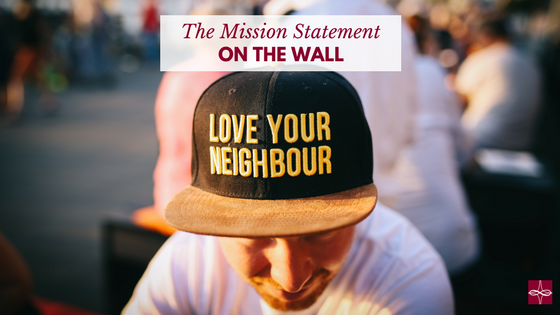

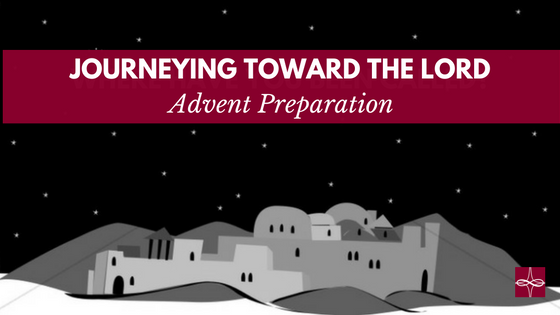
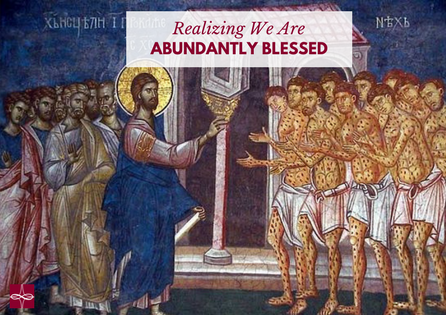
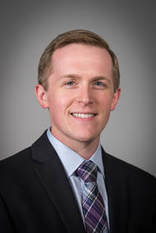
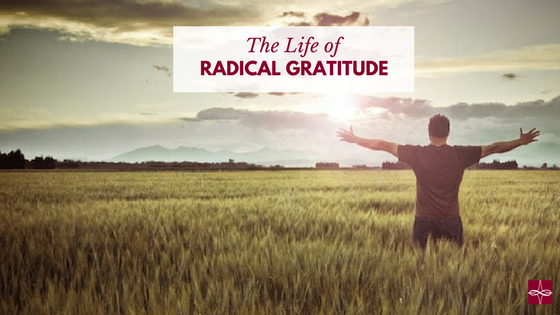


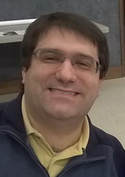
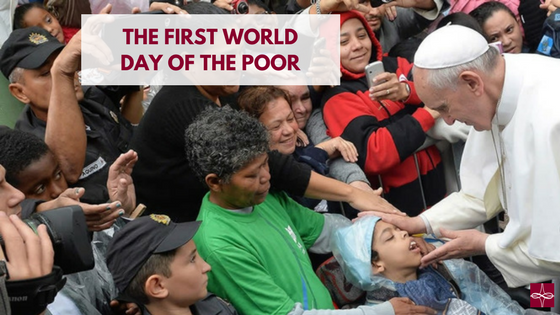



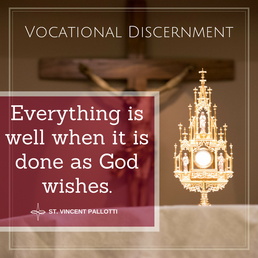
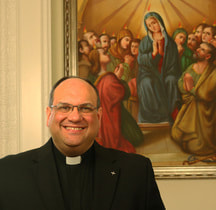
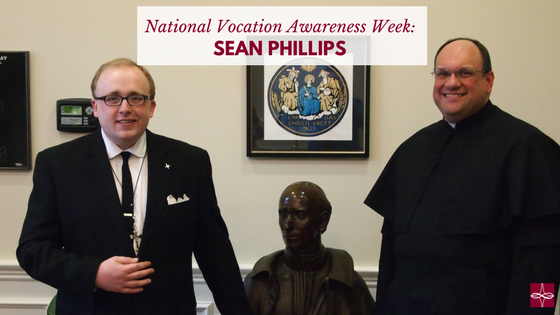
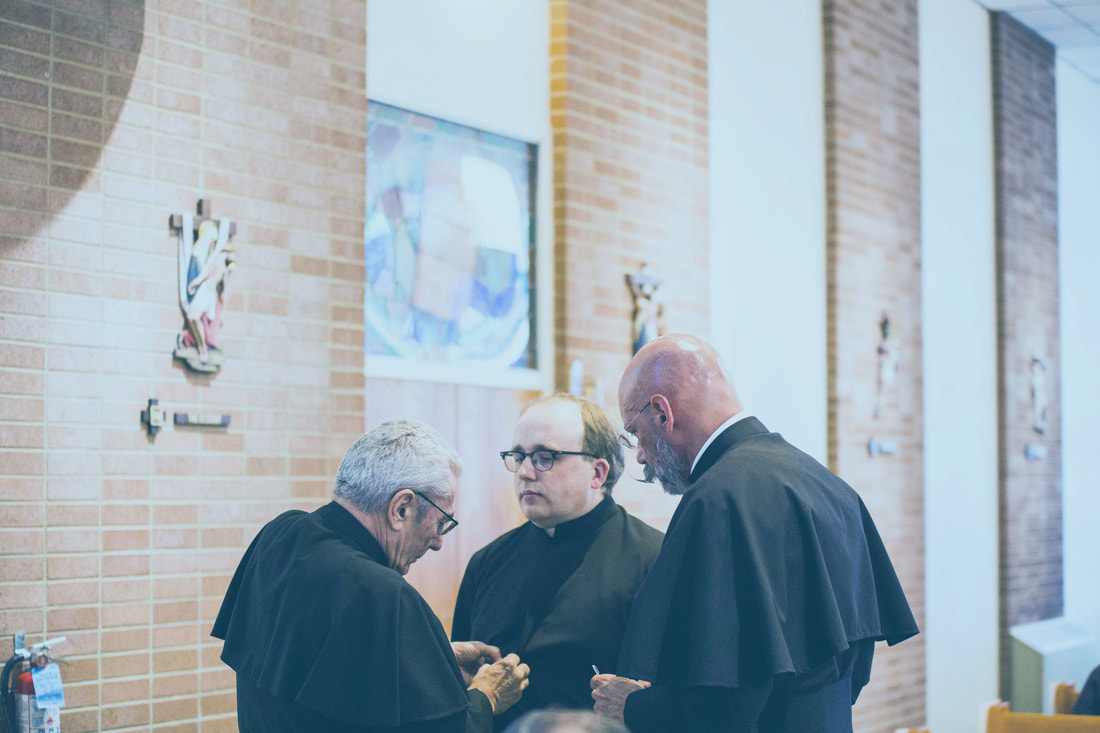

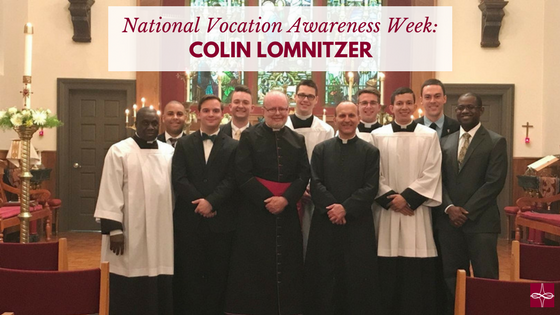
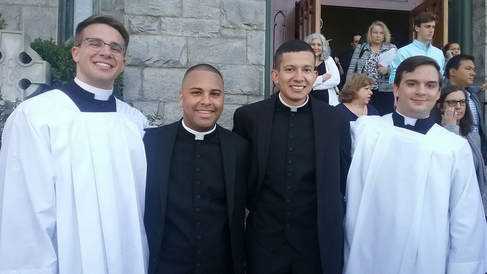
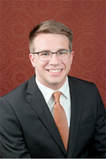
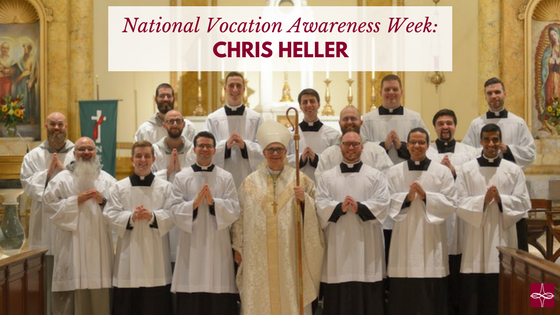
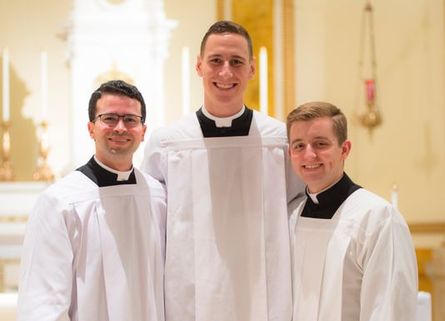
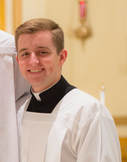
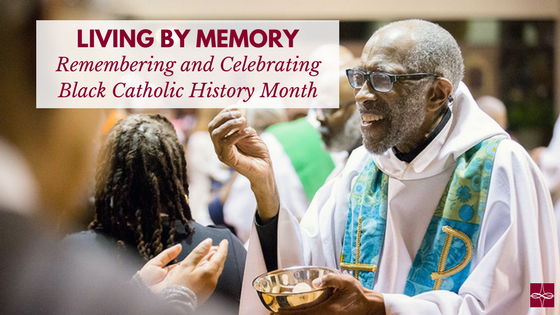
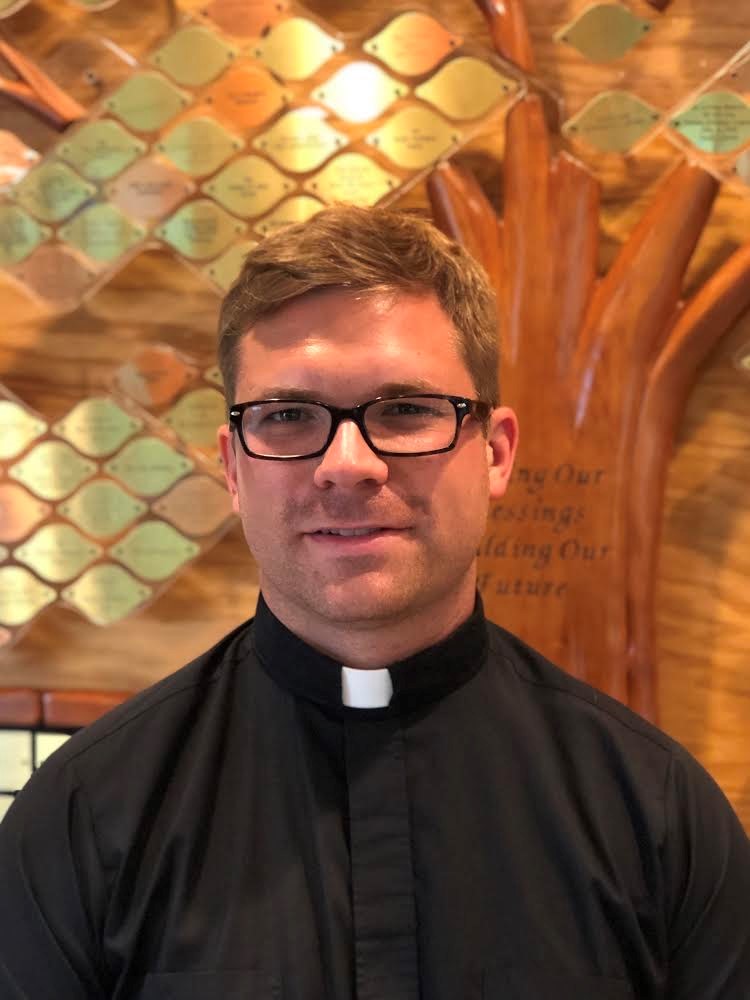
 RSS Feed
RSS Feed